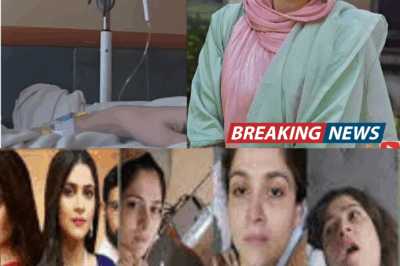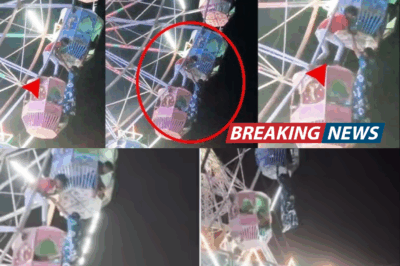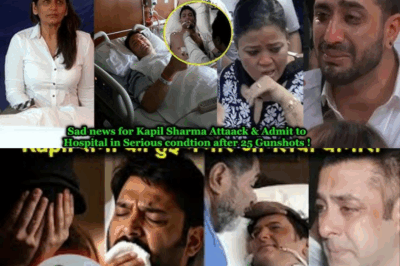Tragedy on the Highway: When Society Failed a Grieving Husband
A heartbreaking video from Nagpur, Maharashtra, has shocked the nation and sparked uncomfortable questions about empathy and systemic failures in India’s emergency response. The footage, which quickly went viral, shows a man riding his motorcycle on the highway, his wife’s lifeless body tied behind him. As the video circulates, viewers are left not only with a sense of horror but also with deep concern over the lack of help offered to this desperate man in his hour of greatest need. This is the story of Amit Yadav—a man abandoned by society when he needed it most.
It was just past noon on a Monday, when the lives of Amit Yadav and his wife, Garsy, changed forever. Amit and Garsy, migrants from Shivni in Madhya Pradesh, had made Nagpur’s Koradi area their home for the past decade. On the occasion of Raksha Bandhan, the couple was traveling from Lonara to Karanpur, passing through Devlapar, likely in hopes of celebrating the festival with relatives. As fate would have it, disaster struck near Morphata on the busy Nagpur-Jabalpur National Highway. A speeding truck hit their motorcycle, violently throwing both Amit and Garsy onto the tarmac. In an instant, Garsy lost her life, her dreams and hopes extinguished at the roadside.
In the chaos that followed, Amit’s despair was met with chilling apathy. Wounded physically and emotionally, he frantically waved at passing vehicles, begging for someone—anyone—to stop and help. He pleaded with drivers, flagged down cars and trucks, and even asked pedestrians. Yet, each time, the answer was the same: people averted their gazes and sped away, unwilling to involve themselves. India is home to thousands of tragic road accidents every year. Yet, this incident laid bare a more insidious malaise: the crippling absence of basic human empathy. No ambulance appeared; no car stopped; not a single stranger offered assistance.
Utterly alone, Amit was forced to make an unthinkable decision. With no help forthcoming, overwhelmed by shock, grief, and a total sense of helplessness, he picked up his wife’s lifeless body and tied it to the back of his two-wheeler. His resolve hardened by abandonment, Amit set off for his native village in Shivni, Madhya Pradesh, determined to take Garsy back home for her last rites. The sight of a man, riding stoically along a bustling Indian highway with his deceased wife strapped to his motorcycle, is one that will haunt all who saw it. Behind him, a group of people in a car began filming the scene, their video capturing not only the tragic consequences of unsafe highways, but also society’s collective failure.
As Amit rode the highway, his journey became a symbol of desperation and societal apathy. Several people attempted to stop him along the way, perhaps only then realizing the severity of the situation. However, Amit, by then stripped of hope in humanity’s willingness to help, pressed on. When you have nothing left to lose, even the most inhumane acts of the world cease to shock. At last, the local highway police intervened. Stopping Amit, they took custody of the body and arranged for it to be transported to the Mayo Hospital in Nagpur for a post-mortem examination.
The aftermath of this incident has left the whole nation disturbed. As details emerged—the truck driver’s recklessness, the indifference of bystanders, the absence of an ambulance, the lack of supportive authorities—the public’s outrage grew. Who is accountable when there are no Good Samaritans? Why, even in 2024, are people still forced to transport loved ones’ bodies due to unavailability of ambulances? Where are the promised quick response services, meant to save lives or, at the very least, preserve some dignity for the dead?
Amit Yadav is not just a news story—he is a grieving husband, his world shattered by both tragedy and the subsequent apathy. Garsy’s death became doubly painful, first in the terrible accident, and then in the indifference of those around her afterward. In interviews, experts and activists argue that such incidents reflect not just failures of road safety, but a deeper crisis in civic responsibility and compassion. “We need more than just regulations,” said one expert. “We need to teach and foster empathy. When tragedy strikes, our response must be humane.”
India ranks among the highest in global road fatalities. While there are strict laws about offering help to accident victims (such as the Good Samaritan Law), implementation remains patchy and fear of police hassle persists. Moreover, ambulance shortages and ineffective emergency services continue to plague both urban and rural areas. The government has launched several helplines, but lack of awareness and red tapism means that families like Amit’s pay the ultimate price. This tragic episode is a wake-up call—about the urgency of efficient emergency care, the need for compassionate public response, and the importance of holding perpetrators of hit-and-run accidents accountable.
The video of Amit riding with his wife’s body has brought collective shame to the conscience of a nation. As the footage spreads, people are left to grapple with difficult questions: Would I have helped if I were there? What does it mean to be a part of a society where one’s deepest sorrow is met with shrugs of indifference? The only silver lining is the national conversation that has reignited around road safety, emergency care, and societal responsibility. As news outlets, activists, and ordinary people demand answers, it is hoped that this tragedy will at least prompt lasting changes—so that never again will someone have to bear their beloved one’s body on a lonely highway ride.
The Nagpur highway tragedy lays bare not just a failure of infrastructure, but the far greater failure of empathy and solidarity among fellow citizens. Amit Yadav’s lonely journey with his departed wife is a story that must be told, remembered, and learned from. Only then can we hope to build a society where, in moments of darkest need, help will come—not just from the authorities, but from every human heart.
News
Areesh Fatima Opens Up About Cancer Battle: A Journey of Strength, Family, and Hope
Areesh Fatima Opens Up About Cancer Battle: A Journey of Strength, Family, and Hope In the world of glitz and…
Rekindled Drama: Rekha and Jaya Bachchan’s Hospital Showdown Renews Old Tensions Over Amitabh
Rekindled Drama: Rekha and Jaya Bachchan’s Hospital Showdown Renews Old Tensions Over Amitabh Bollywood is known not only for its…
The Hidden Sorrows of Juhi Chawla: Bollywood’s Queen of Resilience
The Hidden Sorrows of Juhi Chawla: Bollywood’s Queen of Resilience Bollywood has always been a world of glitter and glamor,…
Miraculous Rescue: Woman Hangs From 100-Feet Ferris Wheel, Brave Teenager Saves Her Life
Miraculous Rescue: Woman Hangs From 100-Feet Ferris Wheel, Brave Teenager Saves Her Life Introduction A visit to a local fair…
Kapil Sharma’s Canadian Cafe Attacked Again Amid Gangs’ Threats Linked to Salman Khan
Kapil Sharma’s Canadian Cafe Attacked Again Amid Gangs’ Threats Linked to Salman Khan Comedian Kapil Sharma’s cafe in Canada, Cap’s…
Bollywood Shocked: Jasmin Bhasin Opens Up About Disturbing Casting Couch Experience By Bureau Report | Bollywood Talks
Bollywood Shocked: Jasmin Bhasin Opens Up About Disturbing Casting Couch Experience By Bureau Report | Bollywood Talks Indian television and…
End of content
No more pages to load








